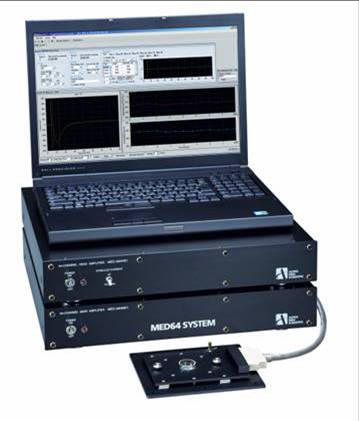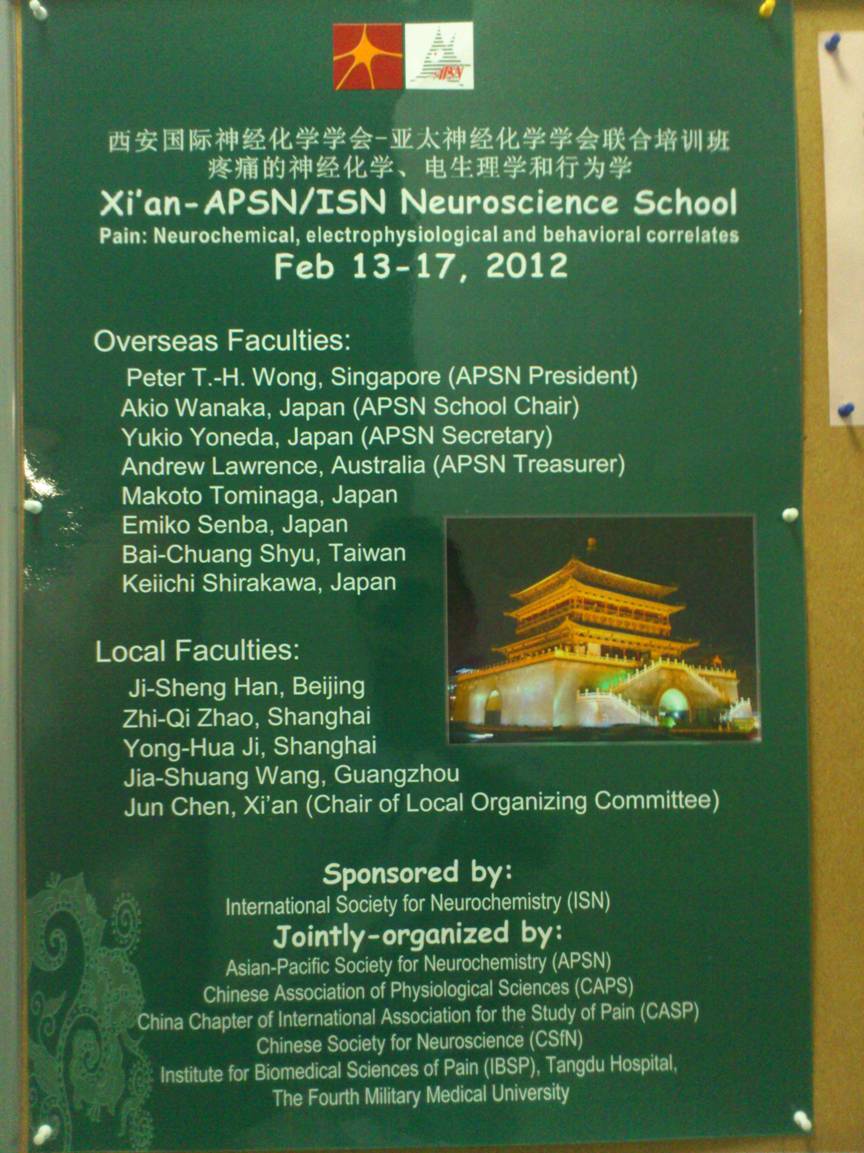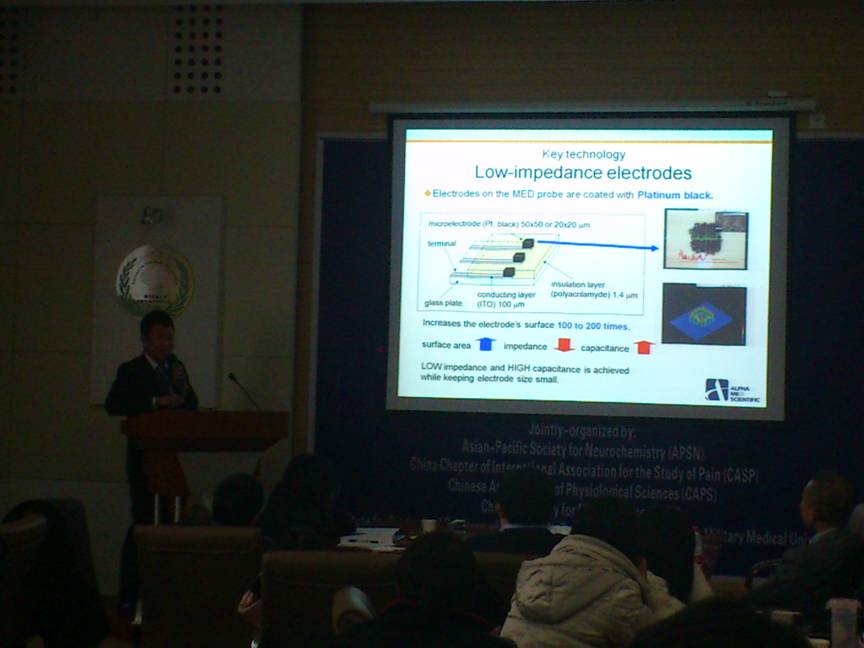Bio-Gene and MED-64 invited to give talk in The 2012 Xi’an-ISN School of “Pain: Neurochemical, electrophysiological and behavioral correlates”
To bridge the gap of changes between neurochemical substrates and neural networks behaviors associated with pain, the Asian-Pacific Society for Neurochemistry (APSN), Chinese Association of Physiological Sciences (CAPS), China Chapter of International Association for the Study of Pain (CASP), Chinese Society for Neuroscience (CSfN), Institute for Biomedical Sciences of Pain (IBSP) of Tangdu Hospital of The Fourth Military Medical University jointly organized the 2012 Xi’an-ISN School in late February 2012. The theme of the 5-day program is “Pain: Neurochemical, electrophysiological and behavioral correlates”. The event provide both comprehensive lectures and hands-on techniques associated with neurochemical, electrophysiological and behavioral sciences. The organizer also invites world renowned researchers from both fields to teach the updated knowledge of pain and advanced behavioral, molecular and neurochemical techniques so as to enable participants to acquire new ideas and to learn new techniques and methods that may be beneficial to their future research. The course lasts for 5 days, including 8 hours theory (4 hours theory lecture and 4 hours technology lecture) and experimental skill and 45 hours of hands-on training. Alpha Med Scientific Inc, manufacturer of Multi-electrode array (MEA) device MED-64, together with Bio-Gene Technology Limited, is invited to exhibit its latest MED-64 system in the event. Dr. Keiichi Shirakawa from MED-64 was invited to give seminar on "Advance in in vitro Multi-Electrode Array recordings in Brain and Pain Research". The MED64 is a user-friendly MEA system for stimulation and recording of field potentials (extracellular signals) from different areas within a biological sample over hours, days, weeks and even months. Acute or cultured biological preparations such as brain slice, myocardium in vitro slice, myocardial cells, or iPS induced cells are placed or grown directly on a grid of 64 planar microelectrodes, which serve a dual purpose of stimulus-delivery and signal recording. The unique construction of the system eliminates the need for cumbersome and expensive equipment used in conventional electrophysiology, including a faraday cage, anti-vibration table, micromanipulators, and even the puller and glass microelectrodes.



Keiichi Shirakawa PhD
Hot News









 Drug Screening/Molecular Biology
Drug Screening/Molecular Biology

